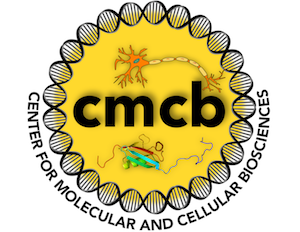The Center for Molecular and Cellular Biosciences
Research in Molecular and Cellular Biosciences
The Center for Molecular and Cellular Biosciences (CMCB), established in 2020, plays a crucial role in advancing the University of Southern Mississippi's (USM) research in molecular biosciences and biotechnology. As a prestigious R1 research institution, it is important that we focus on our core areas of expertise to enhance the prominence of research at USM. The CMCB fulfills this mission by obtaining research grants, publishing top-quality research and delivering outstanding education and training to both undergraduate and graduate students.
Drawing upon our existing strengths, the CMCB explores fundamental questions within cell and molecular biology. Our research encompasses a wide range of topics, including stem cell differentiation, HIV replication, mast cell degranulation, RNA biology, pathogen-host interactions, as well as neurodegenerative and vector-borne diseases.

Graduate Research Stipends Obtain your degree at little to no cost with our competitive stipends.

No-Cost Equipment Reservations The Core Facility offers researchers across the state free access to the latest equipment.

Innovative Biosciences Research Our faculty members are driving innovation in the field of biosciences.
Unique to the Pine Belt region, the CMCB is focused on expanding research frontiers
in biosciences by advancing research, developing infrastructure and enriching graduate
student education and training by embracing creativity and rigor.
Our Research
in competitive extramural funding
publications in 2022
trained since 2020
- The CMCB represents a concentration of competitive research programs that focus on microbiology, molecular and cellular function, as well as infectious and neurodegenerative diseases.
- The CMCB provides comprehensive training for graduate students, supported by competitive research stipends.
- CMCB researchers are funded by prestigious U.S. funding agencies such as the National Institutes of Health, National Science Foundation, the United States Department of Agriculture and more.




